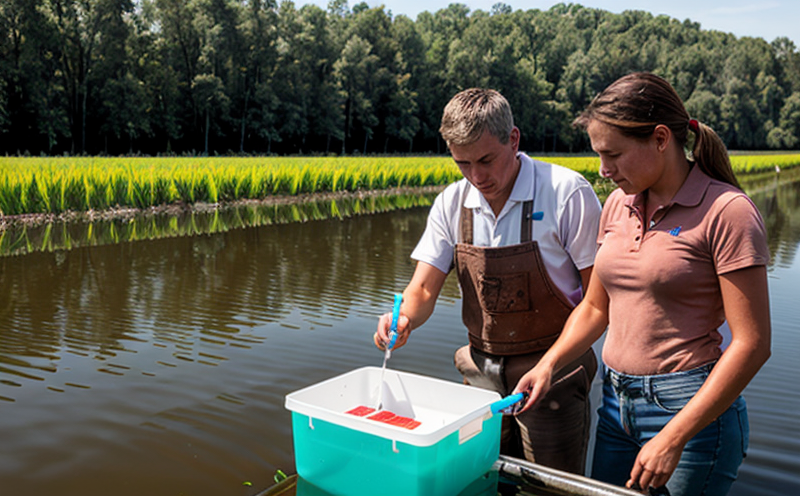Protozoa Testing (Giardia, Cryptosporidium) in Irrigation Water
In the agricultural sector, irrigation water plays a crucial role in maintaining productivity and ensuring crop health. However, contamination from protozoan pathogens such as Giardia lamblia and Cryptosporidium parvum can pose significant risks to both crops and human health. These pathogens are particularly problematic due to their hardiness in the environment and resistance to chlorine disinfection, making them challenging to eradicate from irrigation water supplies.
The presence of these protozoa in irrigation water can lead to contaminated produce, which may result in severe gastrointestinal illnesses among consumers. Consequently, ensuring the safety and quality of irrigation water is paramount for agricultural producers aiming to meet regulatory standards and maintain consumer trust. This service provides comprehensive testing to identify and quantify these pathogens, thereby enabling precise risk assessments and targeted interventions.
The process involves collecting water samples from various points in the irrigation system, including reservoirs, pipes, and distribution points. The collected samples are then processed using advanced molecular detection techniques such as quantitative PCR (qPCR), which offer high sensitivity and specificity for pathogen identification. This ensures accurate quantification of protozoan contamination levels.
Our testing methodology adheres to international standards such as ISO 15216-1:2017, which specifies the procedure for detecting Cryptosporidium and Giardia in water. By following these rigorous guidelines, we ensure that our results are reliable and comparable with other laboratories worldwide.
The importance of this testing cannot be overstated, especially given the increasing demand for safe food products and the potential economic impact of recalls or lawsuits resulting from contaminated produce. Agricultural producers can benefit significantly by incorporating regular protozoa testing into their quality management systems. This proactive approach not only protects public health but also enhances brand reputation and market competitiveness.
Our laboratory employs experienced scientists and technicians who are well-versed in the nuances of waterborne pathogen detection. Leveraging state-of-the-art equipment, we provide rapid turnaround times without compromising on accuracy or precision. Clients receive detailed reports that include raw data, statistical analyses, and actionable recommendations tailored to their specific operational needs.
Scope and Methodology
| Parameter | Description |
|---|---|
| Cryptosporidium parvum | Detection of Cryptosporidium parvum using quantitative PCR (qPCR). |
| Giardia lamblia | Detection of Giardia lamblia using quantitative PCR (qPCR). |
| Sample Collection | Collection from various points in the irrigation system. |
| Sample Preparation | Processing samples for molecular detection using qPCR. |
| Instrumentation | Use of advanced qPCR machines and consumables. |
| Data Analysis | Statistical analysis and reporting. |
Why Choose This Test
The risk posed by protozoan pathogens in irrigation water is multifaceted, encompassing public health concerns, economic implications, and regulatory compliance issues. By choosing our protozoa testing service, clients gain access to robust data that supports informed decision-making processes. Our rigorous testing protocols ensure compliance with international standards, providing confidence that the results are accurate and reliable.
For quality managers, this test offers valuable insights into potential contamination sources within their irrigation systems. This information can guide proactive measures such as improved water treatment practices or enhanced monitoring strategies. Compliance officers benefit from having precise data to substantiate claims of adherence to regulatory requirements, thus mitigating legal risks associated with non-compliance.
R&D engineers involved in developing new irrigation technologies will find our service particularly useful for validating the effectiveness of their innovations against pathogen contamination. Similarly, procurement teams can leverage these test results to select suppliers who meet stringent quality criteria regarding water safety standards.
In summary, choosing this testing service equips stakeholders with critical information necessary for maintaining high standards of agricultural hygiene and food safety, ultimately contributing to sustainable business practices.





